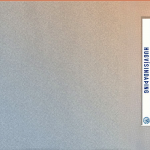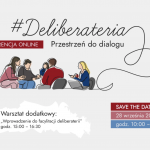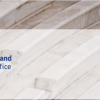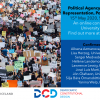Home » Events
Category Archives: Events
DCD participates in ‘Deliberateria – a space for dialogue’
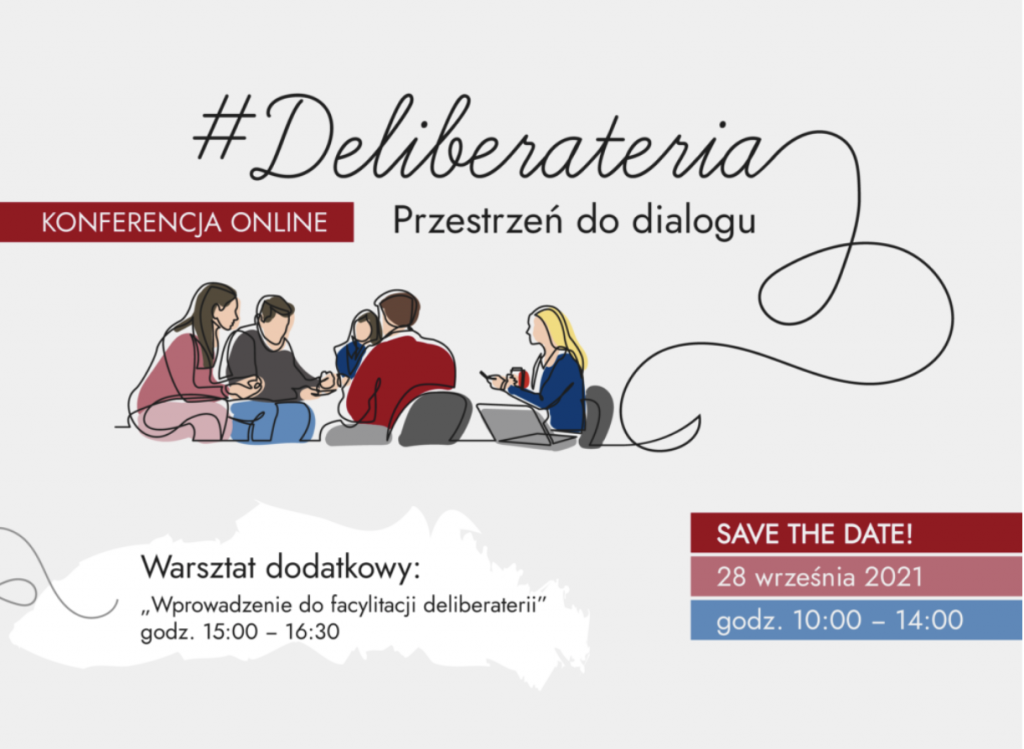
Jón Ólafsson and Salvör Nordal will participate in the online conference Deliberateria – a space for dialogue organized, by the Polish Institute for Human Rights and Business (PIHRB), the DCD and the University of Iceland, which will take place online (zoom platform) on September 28, 2021 at 10.00 – 14.00. The simultaneous translation will be provided (PL-EN- PL).
#deliberateria – a new form of dialogue, or even more broadly – civic engagement, will be presented. It has been developed as a part of “Human rights and business – social dialogue post-COVID19” project, carried out with support from the Active Citizens – National Fund program, financed from EEA Funds. Participants of the conference will also have the opportunity also to experience Deliberataria in practice thanks to mini-deliberateria session integrated into the program of the event.
The project is influenced and inspired by the Icelandic constitutional process and the online pilot meetings with residents of three cities in cooperation with the local governments of Poznań, Przemyśl and Częstochowa, to an e-publication collecting the most important conclusions from the project.
The conference program is available here and further information and registration on the events Facebook page
Online Workshop: Open democracy and new democratic institutions
4 DECEMBER 2020, 13.00-16.00 (GMT)/14.00-17.00 (CET)

Exciting innovations in democratic theory and practice are taking shape amidst widespread concerns about the strength of democratic systems in a world destabilized by financial and economic uncertainties, deep political divisions and unprecedented disruption of daily life on a global scale.
In the next few years, democratic innovations may transform the standard conception of democracy as driven by elected representatives supported by professionalized public administrations. Citizens will increasingly demand and expect inclusion in policy making at all stages: in shaping and expressing the values and goals of democratic society; in identifying and selecting policy options; in deliberating public choices; and in making final decisions about long-term and short-term policies.
The workshop begins with a discussion of Hélène Landemore‘s new book Open Democracy: Reinventing popular rule for the 21st Century – a study of democracy which proposes an institutional paradigm of popular rule that is primarily non-electoral yet promises to be more democratically representative than any currently existing regime form. The author‘s talk is followed by commentaries by Salvör Nordal, Jón Ólafsson and Alex Hudson, who focus on the general argument of the book but also more specifically on the discussion offered of the Icelandic Constitutional Council and its meaning for democratic innovations.
The second half of the workshops expands the discussion of the implications of Hélène Landemore‘s book to a recently published report by the OECD, Innovative Citizen Participation and New Democratic Institutions: Catching the Deliberative Wave. Claudia Chwalisz from the Open Government Unit will talk about the report, which documents how deliberative processes work across different countries, identifies common principles and good practices that may be of useful guidance to policy makers seeking to develop and implement such processes, and discusses different options for institutionalising citizen deliberation.
Registration free and open to all: https://www.eventbrite.co.uk/e/open-democracy-and-new-democratic-institutions-tickets-130395353011
Workshop Program:
13.00-13.05 Welcome and introduction
Oddur Þorri Viðarsson, Legal Adviser at the Department of Legislative Affairs,Iceland’s Prime Minister’s Office
13.05-13.35 New book – Open Democracy: Reinventing Popular Rule for the 21st Century
Hélène Landemore, Tenured Associate Professor of Political Science at Yale University
13.35-14.00 Panel discussion: reflections on the book
Jón Ólafsson, Professor of Comparative Cultural Studies and Russian and East-European Studies at University of Iceland
Salvör Nordal, Director of Centre for Ethics at the University of Iceland
Alexander Hudson, postdoctoral research fellow at the Max Planck Institute for the Study of Religious and Ethnic Diversity
Q&A
14:20-14:45 Break
14:45-15:15 Detailed presentation of Catching the Deliberative Wave report findings
Claudia Chwalisz. Co-author of the OECD report, leading work on innovative citizen participation at the OECD
15:15-15:40 Panel discussion
Claudia Chwalisz, Hélène Landemore, Jón Ólafsson, Salvör Nordal, Alexander Hudson
15:40-16:00 Q&A
16:00 Conclution
For further information: https://www.oecd.org/gov/open-government/open-democracy-and-new-democratic-institutions-workshop-iceland-2020.htm
Political Agency after Covid-19
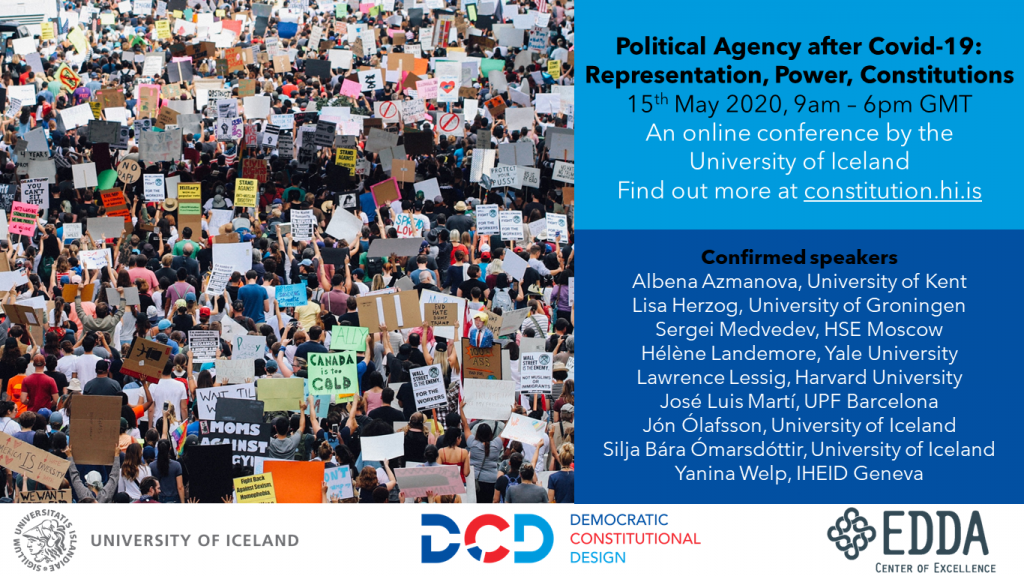
Political Agency after COVID-19: Representation, Power, Constitutions.
15 May 2020 9 am – 6 pm GMT
An online conference mediated by the University of Iceland, EDDA Research Center.
If you have problems with the registration form, please email the conference administrator Þórhildur Heimisdóttir on thorhildurheimis@gmail.com
Conference Program
09:00-09:10 Opening remarks by Katrín Jakobsdóttir, Prime Minister of Iceland
09:10-10:30 Session 1
09:10-09:50
Albena Azmanova, University of Kent
“Battlegrounds of justice — what really grieves the 99%”
Abstract: Before the pandemic, progressive forces were mobilising under the banner of fighting inequality. The pandemic, however, has revealed that the scourge of our societies is the generalised precarity — the massive economic and social fragility that four decades of cuts to public spending created. What policies are necessary for a swift change of direction?
Commentator: Bakar Berekashvili, Georgian American University
09:50-10:30
José Luis Marti, Pompeu Fabra University
“Collective Intelligence in Times of Crisis: Crowdcourced emergency decision-making against the Expertocracy Temptation”
Abstract: One of the temptations that many governments face in situations of emergency is a well-intentioned turn towards expertocracy, under the assumption that normal democratic politics and ordinary citizens are not able to deliver good and correct decisions. For many, democracy in general, in participatory democracy in particular, should be partially suspended or limited during crises like this. But this is very wrong. Evidence from previous emergency situations show how crowdsourced mechanisms of emergency decision-making, under the rights circumstances, may be the best way to improve the quality of decision making, as much as it’s legitimacy. I’ll revise different ways in which collective intelligence may be of great help in times of crisis like this.
Commentator: Eyja Margrét Brynjarsdóttir, University of Iceland
10:45 – 12:05 Session 2
10:45-11:25
Lisa Herzog, University of Groningen
Presentation on trust in science and democratic policy-making
Abstract: One thing that the Corona crisis has made very visible is our dependence on scientists – the press conferences of virologists and epidemiologists have become a daily ritual in many countries. I would argue, however, that structurally speaking, such a dependence on scientists and other experts has existed long before, and that it should be understood as a relationship of trust, rather than mere reliability. I discuss whether and how this dependence can be squared with democratic principles, drawing on Albert Dzur’s work on “democratic professionalism”. I conclude by briefly reflecting on implications for democratic practices such as minipublics or other participatory formats.
Commentator: Arne Hintz, Cardiff University
11:25-12:05
Jón Ólafsson, University of Iceland
“An epistocratic interregnum: The attraction of leaving decisions to specialists.”
Abstract: The prominence of health officials in managing the pandemic has for the most part been a relief to a distrusting public. The specialists are seen as objective and responsible, able to limit recommendations and decisions to what is necessary. Will this experience of a brief period where policies are actually determined by best knowledge make the public more open to a larger specialist role in government? Would that be desirable?
Commentator: Zhar Zardykhan, KIMEP University Almaty
12:40-14:00 Session 3
12:40-13:20
Silja Bára Ómarsdóttir, University of Iceland
“Pandemics and perceptions: ontological security in Iceland”
Abstract: in a 2016 study in Iceland, participants in a survey were asked to identify the main threats they perceived to their own security and that of the state. The focus was by and large on natural and environmental threats, as well as economic stability. Fear of pandemics threatening national security was minimal, but somewhat higher when it came to threats to personal security. In this talk, I ask whether the perception of security, the feeling of being safe, is more important than the state’s ability to provide security.
Commentator: Just Serrano Zamora, University of Groningen
13:20-14:00
Sergei Medvedev, Higher School of Economics, Moscow
“The return of nature: eco- and biopolitics of the pandemic”
Abstract:The current crisis has suddenly revealed the critical role of Nature in our civilization, bringing us back to “bare life”, the biological core of our existence, and placing biopower at the core of the emerging political order. In its origins, the pandemic is rooted in the broken interface between the Human and Nature — so the remedy might be found in reparing this relationship. The exit from the crisis might as well be green, and Nature might be awarded a stronger political agency.
Commentator: Nanna Hlín Halldórsdóttir, University of Iceland
14:15-15:35 Session 4
14:15-14:55
Lawrence Lessig, Harvard University
Democracy in the context of the Covid-19 crisis
Commentator: Viktor Orri Valgarðsson, Durham University
14:55-15:35
Yanina Welp, Geneva Graduate Institute of International and Development Studies
“Loyalty, voice or exit? Reflections from the Latin American experience”
Abstract: several surveys have described a global democratic decline. How will the pandemic affect it in Latin America? The region is characterized by a cyclical economical crisis, weak health systems and presidential regimes in which the executive popularity conditions the stability of the government. Will the crisis create opportunities for increased critical public engagement and possibilities for more participatory and inclusive political agency or will lead to more citizen’s disengagement and power concentration in the executive?
Commentator: Hólmfríður Garðarsdóttir, University of Iceland
15:50-18:00 Session 5
15:50-16:30
Hélène Landemore, Yale University
“Democracy in the Time of Cholera”
Commentator: Brendan Hogan, New York University
16:45-18:00
Roundtable moderated by Jón Ólafsson
Participants to be announced
Conference topic
Governments around the world are facing a pandemic that requires not only global effort but presents a trial of political leadership. Different reactions to the crisis will play out in different ways and have different consequences. In some countries initial reluctance to act by trivializing the threat has undermined political leaders; in other countries, politicians have surprised voters with resourcefulness and principled decision-making. Public health officials have emerged as a major force behind policy decisions and sometimes even dictated social measures affecting most citizens in their societies.
Globally, the pandemic is bound to have destructive economic consequences whose depth and extent will only become clear with time. Elected officials will survive only if they are able to maintain a public perception of their efficiency and trustworthiness – or if they succeed in pinning blame on their political opponents or other domestic or foreign scapegoats.
Will the coming political upheavals be played out in elite power struggles where political leaders desperately try to retain – or gain – public support? Will the situation have deeper, longer lasting systemic consequences, affecting both national and global governance? One of the most intriguing questions is whether the crisis creates opportunities for increased critical public engagement and possibilities for more participatory and inclusive political agency. Will it make clearer the need for foundational documents – such as constitutions – to be co-written and co-designed? Will the crisis affect dominating values and norms by increasing public appetite for collective social action, such as comprehensive public health policies, and by making individual liberty less central in political rhetoric?
The final and most fateful question is whether the pandemic will mark one more step toward governments’ openly embracing techniques of power that enable large scale surveillance of populations. Then we might be looking at intervention based on the most intimate details about citizens personal lives of, for the sake of collective security and public health.
Will the pandemic increase the understanding of the need for strong public policies to fight climate change? Is it going to create an interest in revising some of the more fundamental ideas of liberal democratic societies expressed in constitutions? Or is its presence one more state of exception, which will be normalized and instrumentalized and which will make an ideal of democracy yet more distant?
Deliberative mini-publics facilitating voter knowledge and judgement: Experience from a Finnish local referendum
Maija Setälä, Turku University
Veröld, Auditorium 023, Thursday 12 March, 12:05
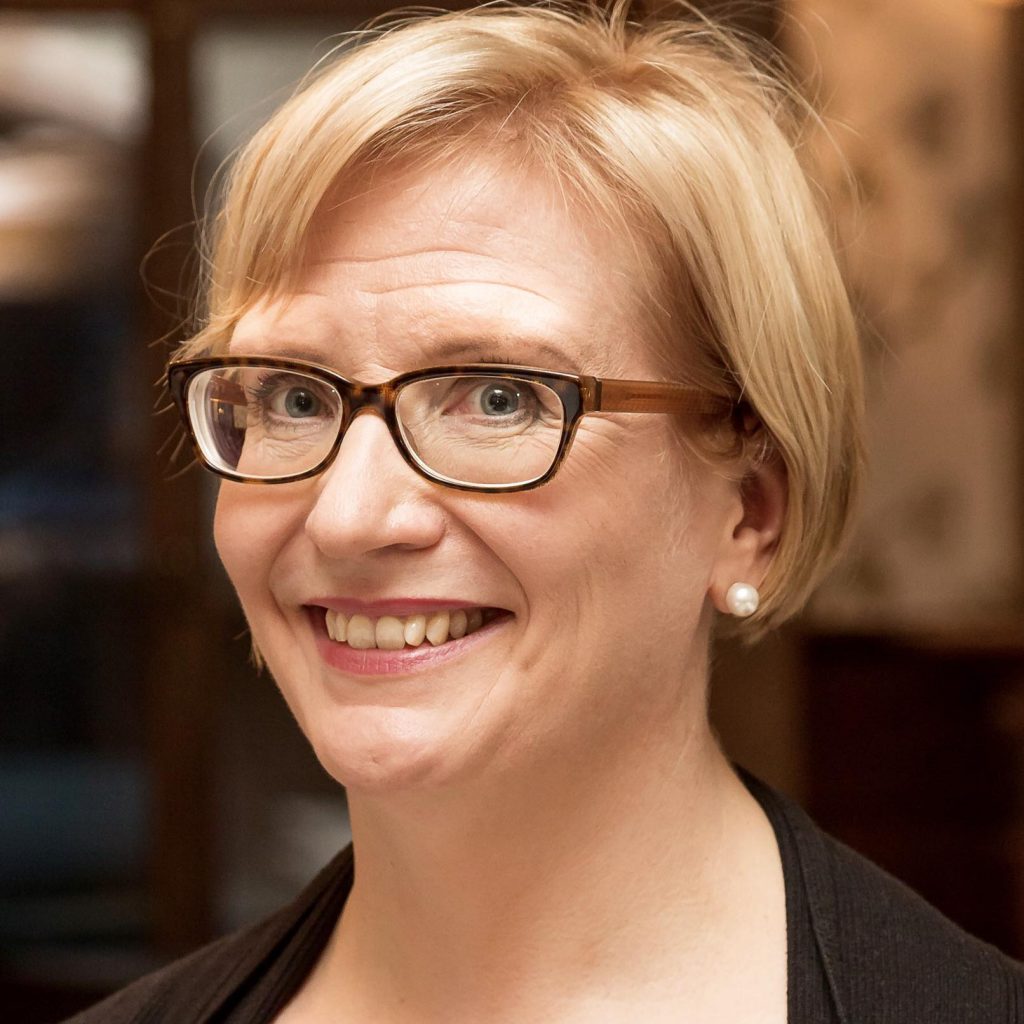
Can a Citizens’ Jury serve as a trusted source of voter information in the context of a government-initiated (top-down) referendum? Several studies show that Citizens’ Initiative Review (CIR) enhances voters’ knowledge and capacity of judgement in a ballot initiative processes. However, similar procedures have not been tested outside the U.S. or in the context of top-down government-initiated referendums. Maija Setälä and her colleagues studied a Citizens’ Jury on Referendum Options organized in the municipality of Korsholm in Finland in 2019. Even though the referendum concerned a contested municipal merger, they found that the Jury participants were nonetheless satisfied with the deliberative process and found it impartial. Furthermore; a large majority of voters had read the statement and thought it was a useful and trustworthy source of information. They also found that reading the statement increased trust in the jury, factual knowledge, issue efficacy and perspective-taking.
Lawrence Lessig: What the Crisis in America’s Democracy Says About Democracy Anywhere
Veröld, hús Vigdísar Thursday 23. January, 16:00 – 17:30
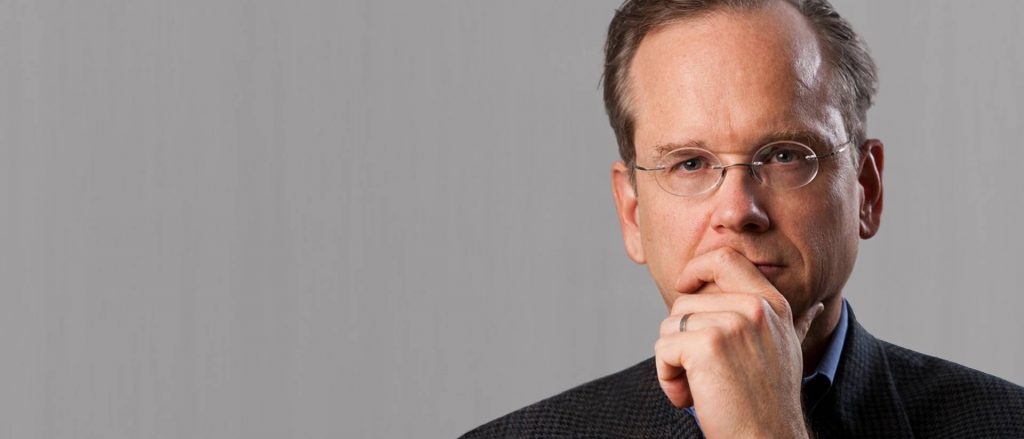
In this talk, Lawrence Lessig argues that the democratic crisis in the United States has less to do with the United States – more with democracy anywhere in the world. He discusses how new technologies have impacted modern society so that democracy itself is at stake. The world is in desperate need of democratic practices and methods that can help democracy flourish democracy, despite the social and technological challenges we currently face.
A Deliberative Poll on the Icelandic Constitution
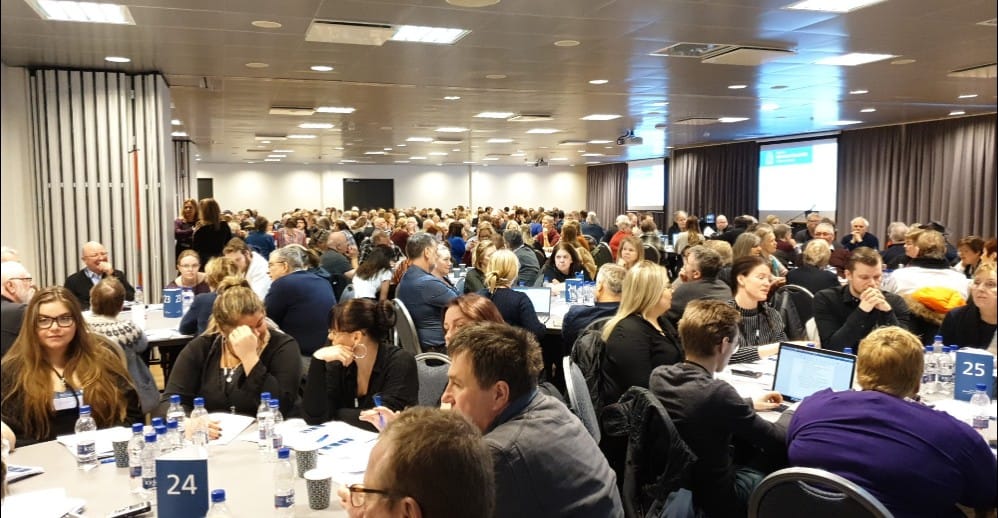
This weekend 9-10 November 2019 the University of Iceland in conjunction with the government will convene a scientific sample of 250 to 300 citizens from all over the country to discuss constitutional amendments. The results will be reported to the government as a direct contribution to an ongoing effort to consider changes to the country‘s constitution. Iceland‘s Prime Minister, Katrín Jakobsdóttir, has described public engagement as essential for a successful completion of a number of constitutional bills which the Parliament will need to pass before its term ends.
A meeting of people from all over the island
The meeting is a part of a Deliberative Poll conducted in cooperation with the Center for Deliberative Democracy at Stanford University. The people participating in the weekend‘s meeting were a part of a bigger sample that took an initial survey this summer in which a number of questions were asked about the respondents’ views regarding certain constitutional amendments. A sub-sample was invited to go one step further and spend two days discussing possible amendments with their peers – expecting that they will meet people with very different views from their own.
Participants will take a new survey on arrival and then complete a third one after their discussion ends on Sunday afternoon. The goal of the meeting is to see what the public’s considered judgments are on the issues once they get a chance to think about them in depth. What do they really think should be done, beyond an impression of sound bites and headlines?
In the deliberative meeting participants will engage in debates on constitutional amendments in small groups. Between group sessions participants will gather in plenary sessions to ask specialists on constitutional law, political philosophy and history to clarify issues that will come up in the discussion. The final questionnaire will show their considered judgements about what should be done.
Seeing and understanding opinion change
A Deliberative Poll is based on a scientific methodology to provide a quantitative measure of opinion change. Stratified random sampling provides a representative group of deliberators. They engage in good conditions for considering the issues—balanced briefing materials, moderated small group discussions, dialogues with experts representing different points of view. The resulting opinions show what the population would think if it could engage the issues under similarly good conditions. In addition to the quantitative measure, the deliberations at the meeting – conducted in small groups – also provide qualitative evidence reflecting the structure of argument and ways in which people may come to revise their beliefs in conversation with others.
In preparing for the upcoming meeting a working group has prepared accessible briefing materials with accurate descriptions of the issues at stake and examples of arguments for and against rival proposals. A number of specialists and stakeholders have also been asked to review and comment on the material and on that basis advise the working group on the balance and accuracy of the materials.
The Center for Deliberative Democracy at Stanford University led by James Fishkin has a long experience of conducting Deliberative Polls. So far 109 Polls have been organized in 28 countries around the world. The latest Deliberative Poll conducted by the center is “America in one Room” – which addressed some of the most divisive issues in US politics today. It was covered by major news media including the CNN and the New York Times (see https://cdd.stanford.edu/2019/america-in-one-room/ ).
A unique combination of Deliberative Poll and Crowdsourcing
One of the unique aspects of the Deliberative Poll in Iceland is its combination with a crowdsourcing exercise conducted at the same time. The crowdsourcing allows anyone with Internet access to engage in an open online discussion on the amendments that are currently being discussed. This open public discussion provides complimentary evidence of public opinion to the information gathered by the Deliberative Poll. It also provided suggestions about the arguments that could be included by the working group.
The current constitutional amendment effort builds on the legacy of years of public discussion about constitutional change. The Icelandic Prime minister, Katrín Jakobsdóttir, has it on her agenda to get the parliament‘s approval of a number of changes before the end of its term in 2021. According to the Icelandic constitution amendments must be approved by the parliament twice, just before and just after elections. If successful, the proposed amendments will take effect after the next parliamentary elections to be held in 2021. Leaders of all political parties that currently hold seats in the Icelandic Parliament are a part of the revision process led by the prime minister.
Background
More than six years after a constitutional bill stalled in the Icelandic Parliament – Althingi – the Icelandic government has thus restarted an effort to change the constitution using wide public engagement.
The Icelandic Constitutional council – a body of 25 elected members – raised considerable international interest in 2011 by producing a draft constitution in a four month fully transparent process, during which the Icelandic public was invited to monitor and participate in the drafting of a document which the Council then submitted to the Icelandic parliament, as a constitutional bill.
The bill, however, was never voted on in Parliament, and even though a consultative referendum in 2012 showed general support for basing a new constitution on the draft submitted by the Constitutional Council, the electoral term expired without the necessary approval by parliament. The bill was not taken up again by a new government.
In the current effort the Prime Minister‘s office has enlisted academic partners to ensure the integrity of a new public consultation process. An independent organization, the Citizens’ Foundation, is carrying out the crowdsourcing exercise, which is a part of a larger research project led by the University. The issues at stake are the role and power of the President, national referendums and legislative initiatives by the public, the court of impeachment and the Parliament’s role in prosecuting government ministers for violating the law on ministerial accountability, voting districts and vote disparity, constitutional amendment procedures and international cooperation, especially with regard to transfer of sovereign power due to international agreements.
Further information:
- Results of the initial survey.
- Consultation on the constitutional changes on the crowdsourcing platform “Better Iceland”
- Interview with Prime Minister Katrín Jakobsdóttir and Professor Jón Ólafsson on the new Icelandic constitutional revision process (English subtitles provided).
Press Contacts:
- Guðbjörg Andrea Jónsdóttir, Director, The Social Science Research Institute, University of Iceland. gudbjorg@hi.is, +354 864 4575
- Jón Ólafsson, Professor, University of Iceland. jonolafs@hi.is, +354 663 4664
- James Fishkin, Professor and Director of the Center for Deliberative Democracy, Stanford University. jfishkin@stanford.edu, +1 650 384 5827
Constitutional Consultation
The Constitution of Iceland will be reviewed during this electoral period in collaboration with all parties in parliament, according to the Prime Minister’s plan, in a comprehensive public consultation. The Democratic Constitutional Democracy Project, which is funded by Rannís, and the Social Sciences Institute of the University of Iceland, is conducting a strategic debate, as part of the public consultation, and in addition, the Highways Initiative for Open Consultation is in collaboration with Ibi Co-operation.
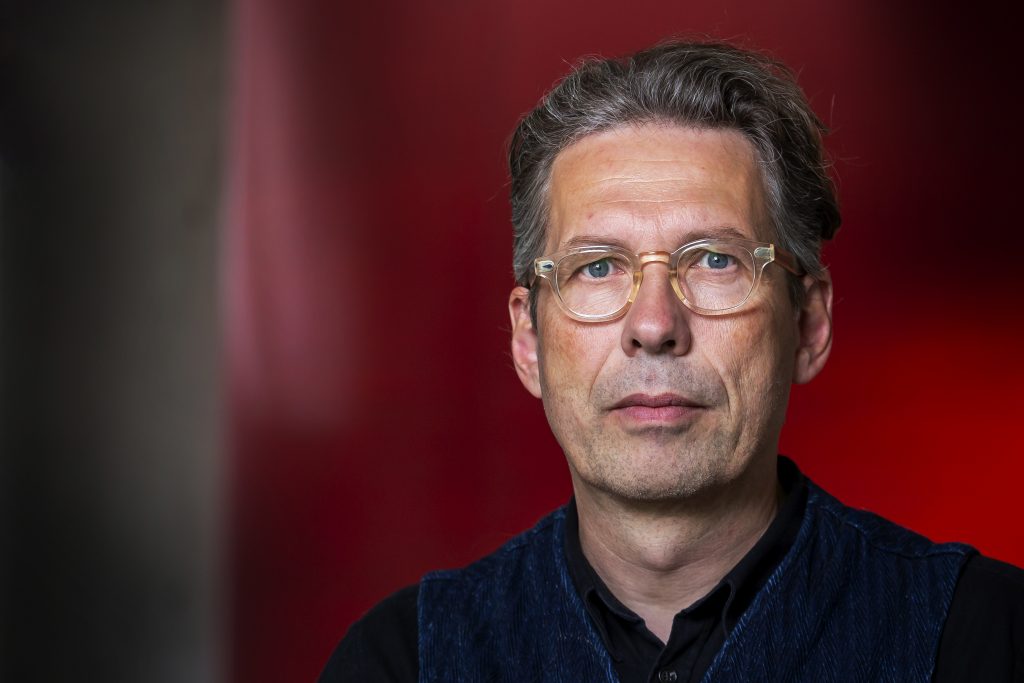
The consultation is based on the clear will of the public that has been prominent over the last 11 years – from the collapse – that ordinary citizens should be more involved in community policy. The University and the residents want to contribute to making this new process both effective and credible and give everyone the opportunity to have their voice heard, as the government has committed to listening to the public in this new issue to revise the Constitution.
Debate is a method to deepen a study of the public’s views from what traditional opinion polls offer. Participants in the opinion poll are therefore not available after answering questions, but are invited to participate in a discussion meeting which discusses the topics of the opinion poll. At the end of the discussion, a new survey is made which can be compared with the original opinion poll. Then it is often found that people’s attitudes change when they have the opportunity to familiarize themselves with and talk to others, especially those who have different opinions. Such changes are what debates are focused on.
The Social Sciences Institute completed the first part of a debate, an opinion poll, this summer. The second part, the discussion meeting, will be held 9-10. November, involving about 300 people from all over the country.
The Highways Project and Residents – Consultation Democracy ses. have, in addition to a logical survey, designed a platform on the Better Iceland website that allows open consultation on the elements of the constitution which is intended to change during this electoral period. Most people suggest that Icelanders agree more than disagree about most that need to be reviewed, but there is much to debate and find ideas for the best implementation. The consultation platform is designed with a view to being easy to present and support clear and clear arguments. In doing so, we advance the public’s intuition and knowledge, while reducing the risk of contentious jitters and bullying. Better Iceland has many years of experience in the management of democratic debates and has designed software that supports thoughtful and substantive discussion.
Jón Ólafsson, professor and leader of the high-level project, says that many people have been angered by how the work of the Constitutional Council went down in the sand with the support of the parliament, which never voted on the council’s bill. “There is little doubt, however, that the work and public debate that took place at the time has shaped the nation’s understanding of the most important constitutional changes. None of what is being addressed in this process is contrary to the proposals of the Constitutional Council and discussion of these issues is still strongly influenced by the Council’s work, ”says Jón.
In the Prime Minister’s Memorandum submitted in January 2018, the revision of the Constitution is divided into two parts. During this electoral period, seven aspects are addressed: the presidential office, natural resources and the environment, provisions on amendments to the constitution, delegation of powers for international cooperation, referendums and national elections, constituency and voting. All of these issues are being discussed on Better Iceland’s consultation web.
The results of an opinion poll by the Social Science Institute on constitutional changes.
Negotiating Civic Engagement, Institutional Control and the Common Good”
26 September 2019, 12:00-13:20
Veröld – House of Vigdís: Main auditorium (VHV
023)
Open University Lecture: “Democratic Constitutional Design: Negotiating Civic Engagement, Institutional Control and the Common Good”
Speaker: Robert Talisse, Professor of Philosophy and Department Chair Philosophy Department, Vanderbilt University
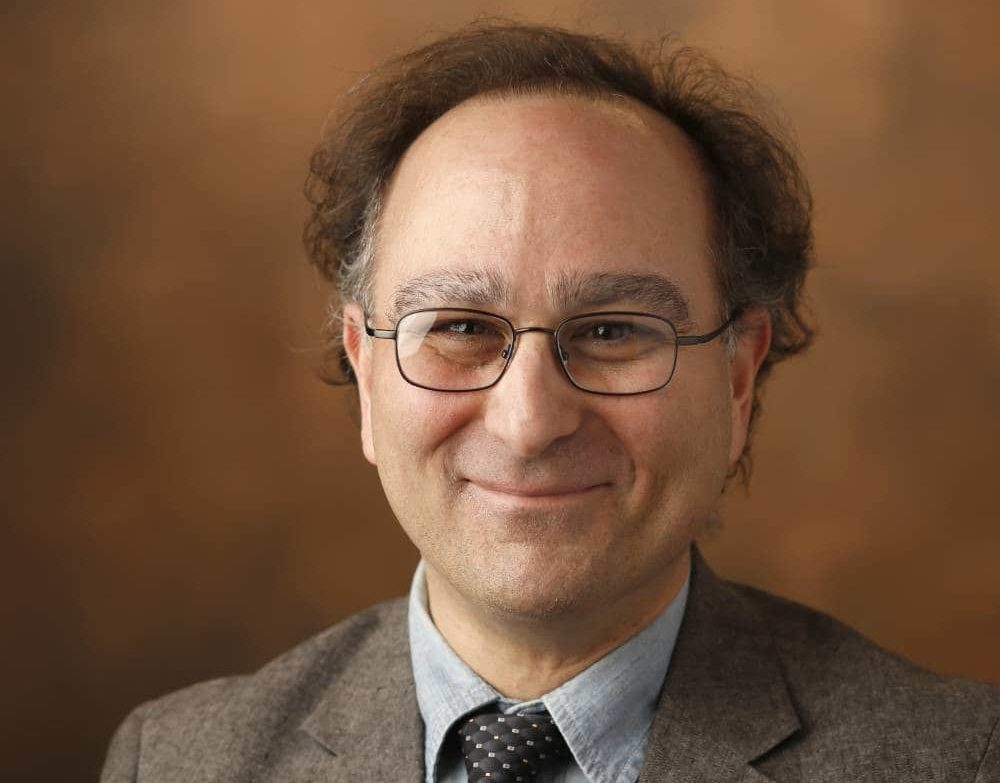
In this talk Robert Talisse draws from his new book, Overdoing Democracy, in presenting recent findings regarding political polarization. Although common analyses recommend that the way to address with polarization is to encourage citizens and politicians to “reach across the aisle,” data show that this strategy frequently backfires, escalating rather than easing partisan hostility. Offering an alternative prescription, Talisse argues that polarization is a result of the near total infiltration of political allegiances and identities into our social lives. Today, our everyday activities are increasingly fused with our political profiles: commercial spaces, workplaces, professions, schools, churches, sports teams, and even public parks now tend to embody a particular political valence. When politics is permitted to saturate our social environments, we impair the capacities we need in order to enact democracy well. In a slogan, when we overdo democracy in this way, we undermine it. The solution is to build venues and activities where people can engage in cooperative activities together in which their political identities are neither bolstered nor suppressed, but simply beside the point. If we want to do democracy well, we need to put politics in its right place.
